Nutritionist Le Thao Nguyen, Nam Sai Gon International General Hospital, replied that the human body operates according to a biological clock, meaning that organs have different activity cycles during the day. At night, especially after 8 p.m., the body's metabolic rate, digestive ability, and insulin sensitivity decrease. If you eat a lot at dinner at this time, the energy you take in will not be used effectively by the body and will easily turn into stored fat.
On the other hand, many studies have demonstrated a link between dinner time and weight. A Harvard study (2022) found that people who ate dinner four hours later than usual burned less energy, felt hungrier, and tended to gain weight faster than those who ate dinner earlier. In Japan, a study of more than 2,000 people found a significantly increased risk of obesity in people who often ate after 8 p.m. or ate late at night.
When you eat late, the body does not use much energy but accumulates as fat, which in the long run will cause overweight, increased visceral fat, and even lead to insulin resistance - a precursor to type 2 diabetes.
Potential risk of digestive problems
In addition to the weight problem, eating late at night also affects the digestive system. After eating, the stomach needs about 2-3 hours to digest. If you lie down right after eating, stomach acid can reflux into the esophagus, causing heartburn, acid reflux, heartburn, bloating or nausea. This is a common symptom of gastroesophageal reflux disease.
Especially for the elderly, people with gastritis or digestive disorders, eating late is even more dangerous. These people are prone to bloating, flatulence, difficulty sleeping and waking up tired because of digestive system stress, which can easily lead to other dangerous digestive complications such as stomach ulcers, esophageal ulcers, Barrett's esophagus - a precancerous lesion.

The ideal time to have dinner is before 6pm, and dinner should be at least 2-3 hours before bedtime.
PHOTO: CAT ANH
So what is the best time to have dinner?
The ideal time to eat dinner is before 6pm. You should eat dinner at least 2-3 hours before bedtime, so that your body has time to digest and absorb well. If you exercise in the evening, you can have a light meal at least 30 minutes before with easily digestible foods such as soup, porridge, yogurt or fruit.
In addition to the time, choosing the nutrition for dinner also plays an equally important role. Avoid overeating, eating too much starch and fat. Prioritize easily digestible foods such as green vegetables, fish, lean meat, tofu, etc. Avoid coffee, strong tea, soft drinks, and alcohol after 7 p.m. because they can easily irritate the stomach and cause insomnia. Maintain the habit of light exercise after eating to help the digestive system work better.
If you have to have dinner after 8pm, what should you do?
In today's busy lifestyle, having to eat late dinner is sometimes unavoidable. If you have to eat late, you should reduce the amount of starch, limit fried or greasy foods and prioritize easily digestible dishes such as boiled vegetables, steamed fish, eggs or warm milk.
In addition, you should eat at least 1-2 hours before bedtime to give your digestive system time to work effectively. At the same time, walk lightly or sit and rest for 30-60 minutes after eating to avoid bloating and stomach reflux.

Source: https://thanhnien.vn/alo-bac-si-nghe-an-toi-sau-20-gio-co-gay-tang-can-roi-loan-tieu-hoa-18525111415224806.htm


![[Photo] Prime Minister Pham Minh Chinh meets with representatives of outstanding teachers](https://vphoto.vietnam.vn/thumb/1200x675/vietnam/resource/IMAGE/2025/11/15/1763215934276_dsc-0578-jpg.webp)
![[Photo] Panorama of the 2025 Community Action Awards Final Round](https://vphoto.vietnam.vn/thumb/1200x675/vietnam/resource/IMAGE/2025/11/15/1763206932975_chi-7868-jpg.webp)


![[Photo] General Secretary To Lam receives Vice President of Luxshare-ICT Group (China)](https://vphoto.vietnam.vn/thumb/1200x675/vietnam/resource/IMAGE/2025/11/15/1763211137119_a1-bnd-7809-8939-jpg.webp)



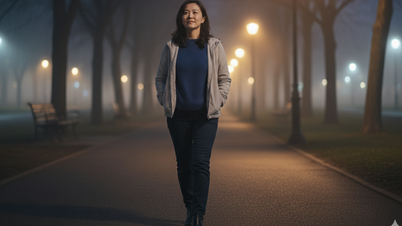
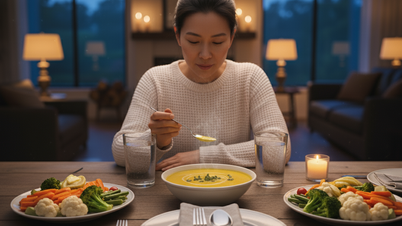
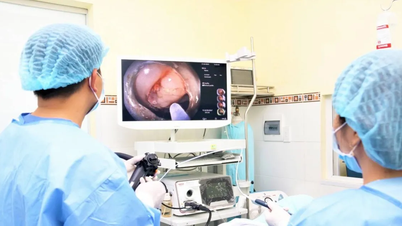

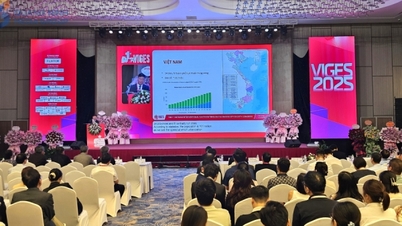


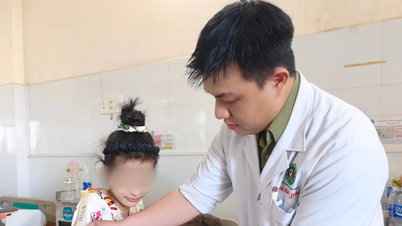
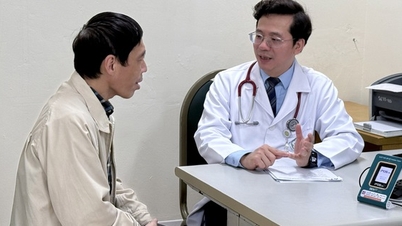


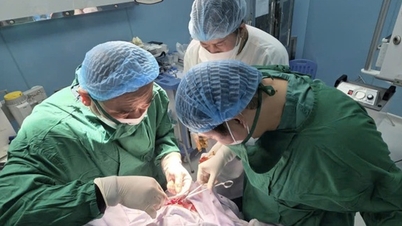






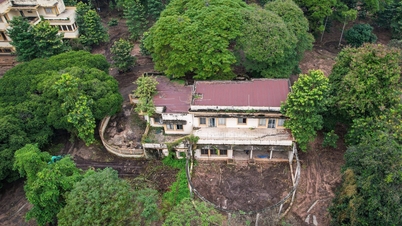



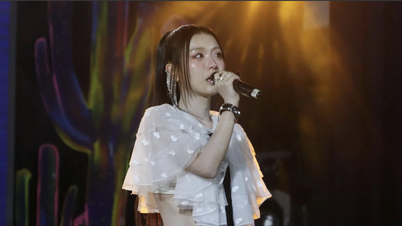












































































Comment (0)